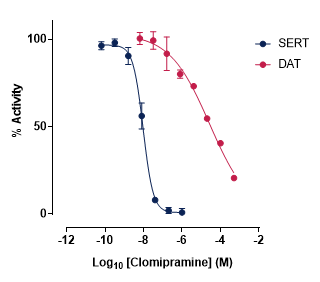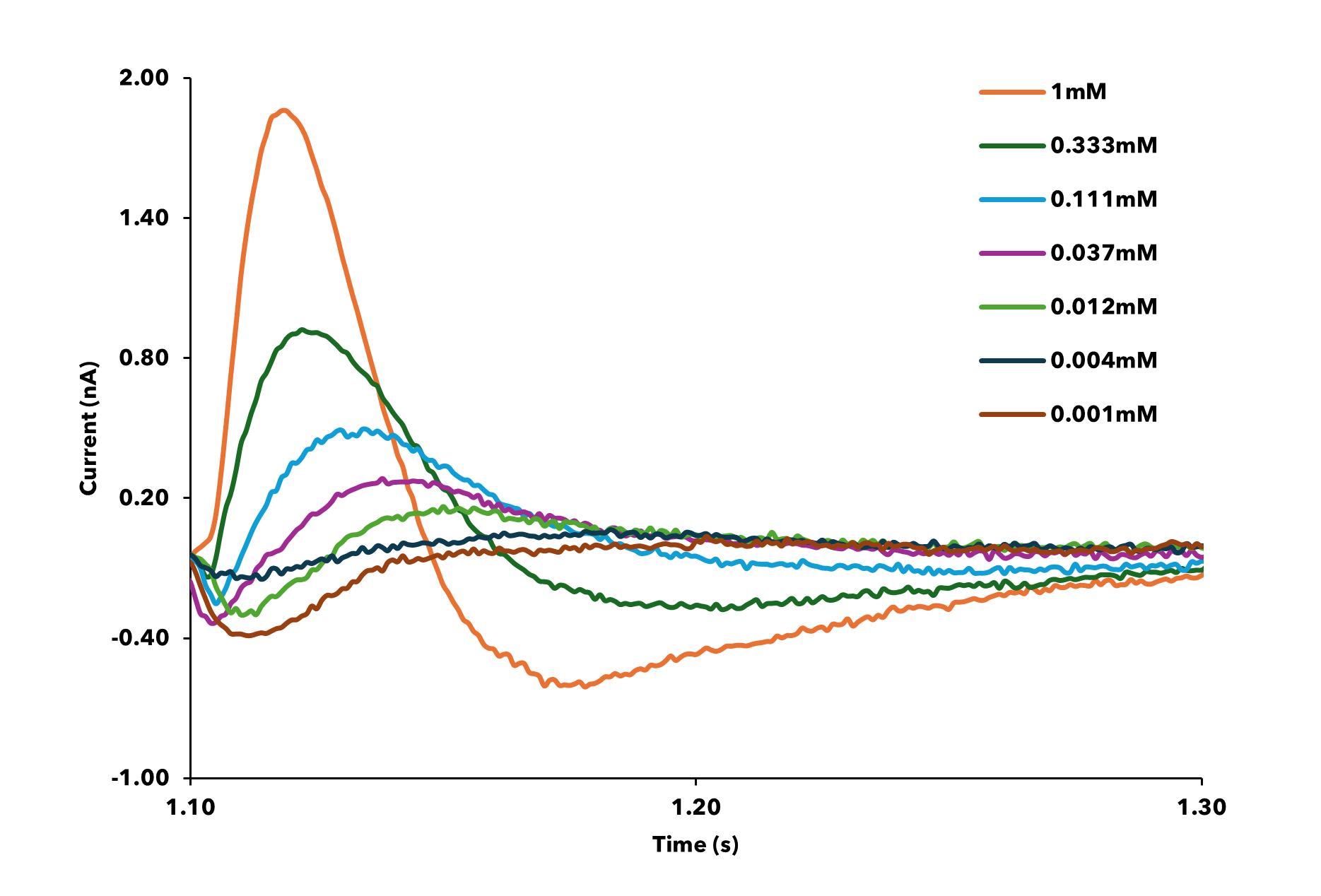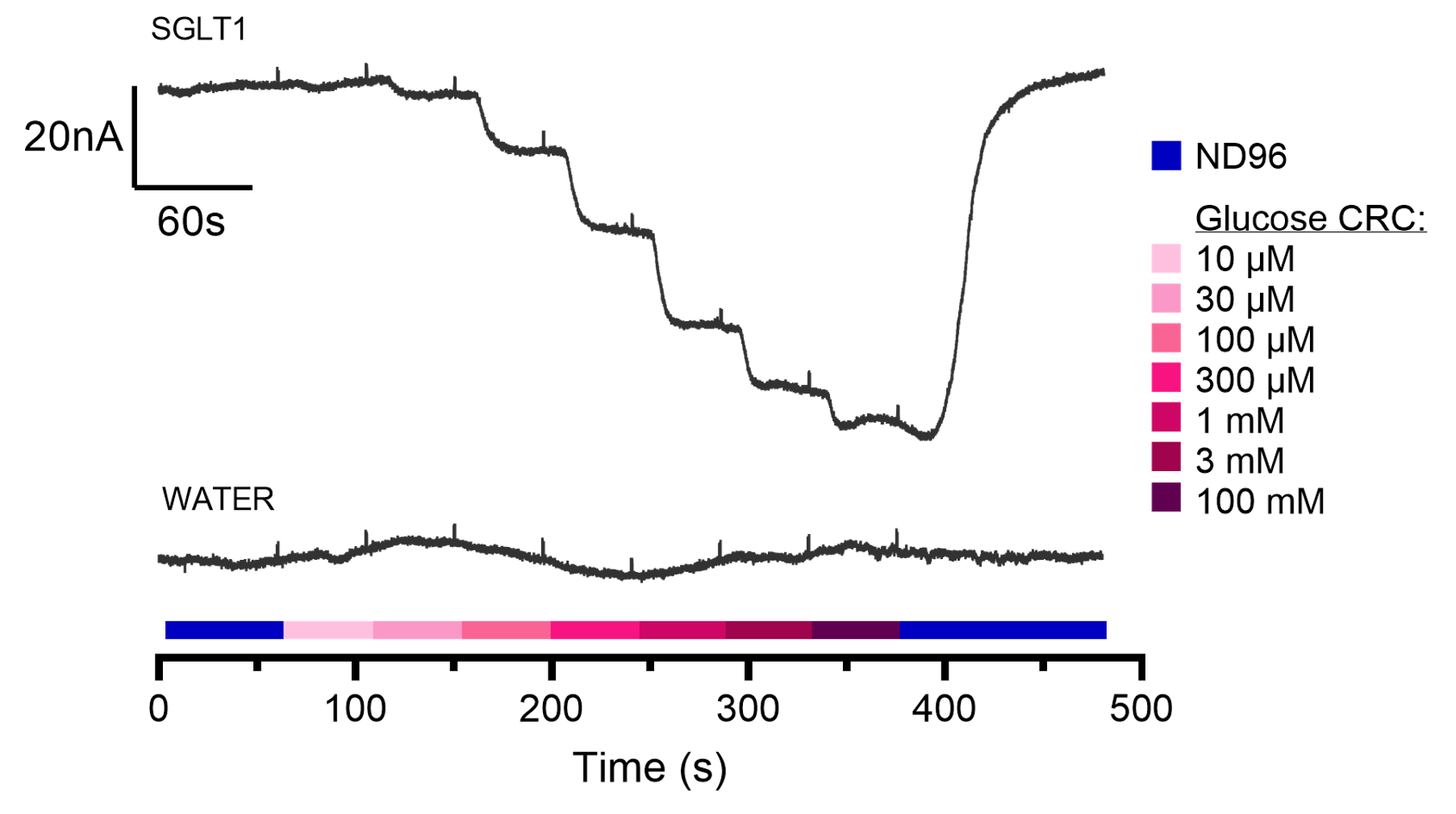Transporter Drug Discovery
Custom cell-based tools and advanced technologies for transporter research
Advance your transporter drug discovery with Sygnature Discovery’s Transporter Discovery Platform, featuring custom cell-based tools and advanced technologies, to deliver robust data and accelerate your research.
Human Solute Carrier (SLC) transporters are essential proteins that regulate molecule and ion movement across cell membranes, supporting processes such as nutrient uptake, waste removal, and cell signalling. Their role in cellular balance makes them promising therapeutic targets, with dysfunction linked to cancers, CNS disorders, and metabolic diseases. Sygnature Discovery’s advanced assays, including binding, fluorescence-based screening, and solid-supported membrane electrophysiology (SSME), are designed to identify small molecule modulators and accelerate transporter-targeted drug discovery.
Custom assay development to accelerate your research
Sygnature Discovery’s target development group designs specialized assays precisely tailored to fit your unique discovery research needs. Our extensive assay capabilities enable fluorescence-based screening assays and state-of-the-art transporter electrophysiology to support identification of novel starting points for lead optimization. Working closely with your team, we customize assays to address project-specific challenges, delivering robust, reliable data that supports and enhances each stage of your drug discovery journey.
Access to the transporter assays you need
| Amino Acid Transporters | |
|---|---|
| SLC1A1 | EAAT3 |
| SLC1A2 | EAAT2 |
| SLC1A3 | EAAT1 |
| Class II Transporters | |
|---|---|
| SLC2A9 | GLUT9 |
| Sodium-Dependent Glucose Transporters | |
|---|---|
| SLC5A1 | SGLT1 |
| SLC5A2 | SGLT2 |
| SLC5A4 | SGLT3 |
| SLC5A9 | SGLT4 |
| SLC5A10 | SGLT5 |
| SLC5A7 | CHT |
| SLC5A11 | SGLT6 |
| Sodium-Calcium Exchangers | |
|---|---|
| SLC8A1 | NCX1 |
| Peptide Transporters | |
|---|---|
| SLC15A1 | PepT1 |
| SLC15A2 | PepT2 |
| SLC15A3 | PHT2 |
| Nucleoside Transporters | |
|---|---|
| SLC28A1 | CNT1 |
| Metal Ion Transporters | |
|---|---|
| SLC39A2 | ZIP2 |
| Heteromeric Amino Acid Transporters | |
|---|---|
| SLC7A2b | CAT2b |
| SLC7A3 | CAT3 |
| SLC7A5 | LAT1 |
| Neurotransmitter Transporters | |
|---|---|
| SLC6A2 | NET-1 |
| SLC6A3 | DAT-1 |
| SLC6A4 | SERT |
| SLC6A1 | GAT1 |
| SLC6A11 | GAT3 |
| SLC6A9 | GLYT1 |
| SLC6A5 | GLYT2 |
| SLC6A19 | B0AT1 |
| Cation-Coupled Chloride Transporters | |
|---|---|
| SLC12A1b | NKCC2b |
| SLC12A2 | NKCC1 |
| SLC12A4 | KCC1 |
| SLC12A5a | KCC2a |
| SLC12A5b | KCC2b |
| Organic Cation and Anion Transporters | |
|---|---|
| SLC22A2 | OCT2 |
| Proton-Coupled Amino Acid Transporters | |
|---|---|
| SLC36A1 | PAT1 |
| SLC36A2 | PAT2 |
Transporter Screening Services
Cell Line generation
membrane purification
screening assays
customized cascades
Leading Technologies for Rapid, Reliable Results
Radiolabeled uptake assays
Radiolabeled uptake assays offer a highly sensitive and reliable way to measure SLC transporter activity providing direct insight into transporter function. Our team applies proven protocols to support hit identification, compound profiling and functional characterization across a wide range of transporter targets.
![sglt2-radioligand-binding-assay-inhibitor-response Bar chart showing [14C]AMG uptake in SGLT2-expressing and control cells with and without inhibitor treatment, demonstrating significant transporter-specific uptake and inhibition.](https://www.sbdrugdiscovery.com/wp-content/uploads/2025/07/sglt2-radioligand-binding-assay-inhibitor-response-e1752741010290.png)
Figure 1: Uptake of [14C]AMG in SGLT2-transfected HEK cells and control HEK cells in the presence and absence of the inhibitor phloridzin.
Fluorescence-Based Screening
Fluorescence-based screening assays offer fast, economical solutions to help identify novel modulators of SLC transporters. At Sygnature Discovery, our experienced team leverages high-throughput, 384- and 1536-well fluorescence-based screening platforms, state-of-the-art compound dispensing technologies and advanced analysis software, setting the standard for excellence by delivering rapid and precise hit identification solutions for your SLC transport discovery needs.

Figure 2: Clomipramine-mediated inhibition of SERT (SLC6A4) and DAT (SLC6A3) activity measured using a fluorescence-based assay. Data show concentration-dependent reduction in transporter activity, with SERT displaying a greater sensitivity to clomipramine inhibition.
Electrophysiology Studies
Our solid-supported membrane electrophysiology technology provides precise, reliable assessment of transporter activity. The SURFE2R N1 and SURFE2R 96SE systems enable flexible, high-sensitivity screening and characterization of compounds targeting electrogenic transporters.
The SURFE2R N1 is ideal for detailed mechanistic investigations and low-throughput hit validation, offering robust and precise signal detection with excellent temporal resolution. Complementing this, the SURFE2R 96SE supports higher-throughput workflows, enabling real-time screening and functional profiling across multiple conditions simultaneously.
Together, these systems deliver robust functional recordings within native membrane environments, offering unparalleled versatility and scalability for your transporter research.

Figure 3: EAAT3-mediated transporter currents recorded using solid-supported membrane (SSM)-based electrophysiology following increasing concentration of L-glutamate. Traces demonstrate a dose-dependent increase in inward current amplitude, consistent with electrogenic substrate transport by EAAT3.
Two-electrode voltage-clamp
Two-Electrode Voltage-Clamp (TEVC) enables sensitive, reproducible measurements of electrogenic transporter activity in Xenous laevis oocytes. The large size and low background activity of these cells make them ideal for challenging targets. TEVC provides an efficient and reliable way to assess responses to compounds and measure transporter function, supporting target validation, hit identification and lead profiling.

Figure 4: Example transmembrane current traces (nA) of an SGLT1 injected Xenopus oocyte and a water injected oocyte (negative control) using TEVC. Increasing glucose concentration induced a dose-dependent activation of nA in SGLT1-expressing ooctyes. No change was observed in water-injected oocytes.
Contact SB Drug Discovery
To learn more about our services or to request a quote.

Transporter Case Studies
Explore our transporter drug discovery case studies. Click on a title to view the full case study.







